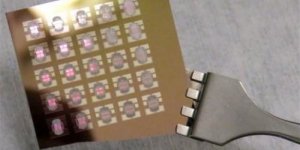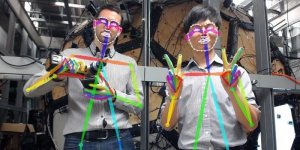| News / Tech News |
Samsung Ends Production of Problem-Plagued Galaxy Note 7
Voanews | OCTOBER 11, 2016
South Korean electronics giant Samsung says it will no longer manufacture its troubled Galaxy Note 7 smartphone after numerous reports around the globe of overheating.

Samsung at 2009 Consumer electronics show. ![]()
The company announced Tuesday it was shutting down production for good in the interest of consumer safety.
Samsung announced earlier in the day that it was stopping all global sales and exchanges of the Galaxy Note 7, and advised all customers to stop using the device immediately.
The South Korean conglomerate sustained a massive eight percent loss in its share price at the end of Tuesday's stock market trading session.
The Note 7 had barely been on the market for a month when Samsung announced a global recall of 2.5 million units due to faulty batteries in early September.
Samsung offered replacement units to all of its customers, before reports resurfaced of overheating with the new devices, raising fresh doubts about the firm's quality control abilities
A number of major cellphone companies, including U.S-based AT&T and German rival T-Mobile, unilaterally announced a halt to sales and exchanges of the Galaxy Note 7 on Sunday.
The top-of-the-line Note 7 was crucial to Samsung's growth plans this year, with the company struggling to boost sales, squeezed by Apple in the high-end sector and Chinese rivals in the low-end.
YOU MAY ALSO LIKE





